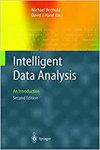Pure large kernel convolutional neural network transformer for medical image registration
IF 0.8
4区 计算机科学
Q4 COMPUTER SCIENCE, ARTIFICIAL INTELLIGENCE
引用次数: 0
Abstract
Deformable medical image registration is a fundamental and critical task in medical image analysis. Recently, deep learning-based methods have rapidly developed and have shown impressive results in deformable image registration. However, existing approaches still suffer from limitations in registration accuracy or generalization performance. To address these challenges, in this paper, we propose a pure convolutional neural network module (CVTF) to implement hierarchical transformers and enhance the registration performance of medical images. CVTF has a larger convolutional kernel, providing a larger global effective receptive field, which can improve the network’s ability to capture long-range dependencies. In addition, we introduce the spatial interaction attention (SIA) module to compute the interrelationship between the target feature pixel points and all other points in the feature map. This helps to improve the semantic understanding of the model by emphasizing important features and suppressing irrelevant ones. Based on the proposed CVTF and SIA, we construct a novel registration framework named PCTNet. We applied PCTNet to generate displacement fields and register medical images, and we conducted extensive experiments and validation on two public datasets, OASIS and LPBA40. The experimental results demonstrate the effectiveness and generality of our method, showing significant improvements in registration accuracy and generalization performance compared to existing methods. Our code has been available at https://github.com/fz852/PCTNet.用于医学图像配准的纯大核卷积神经网络变压器
形变医学图像配准是医学图像分析中的一项基础和关键任务。近年来,基于深度学习的方法得到了迅速发展,并在可变形图像配准方面取得了令人印象深刻的成果。然而,现有的方法在配准精度和泛化性能上仍然存在局限性。为了解决这些问题,本文提出了一种纯卷积神经网络模块(CVTF)来实现分层变换,提高医学图像的配准性能。CVTF具有更大的卷积核,提供更大的全局有效接受场,这可以提高网络捕获远程依赖关系的能力。此外,我们引入了空间交互关注(SIA)模块来计算目标特征像素点与特征图中所有其他点之间的相互关系。这有助于通过强调重要的特征和抑制不相关的特征来提高对模型的语义理解。基于所提出的CVTF和SIA,我们构建了一个新的注册框架PCTNet。我们应用PCTNet生成位移场和配准医学图像,并在OASIS和LPBA40两个公共数据集上进行了大量的实验和验证。实验结果证明了该方法的有效性和通用性,与现有方法相比,在配准精度和泛化性能上有显著提高。我们的代码可以在https://github.com/fz852/PCTNet上找到。
本文章由计算机程序翻译,如有差异,请以英文原文为准。
求助全文
约1分钟内获得全文
求助全文
来源期刊

Intelligent Data Analysis
工程技术-计算机:人工智能
CiteScore
2.20
自引率
5.90%
发文量
85
审稿时长
3.3 months
期刊介绍:
Intelligent Data Analysis provides a forum for the examination of issues related to the research and applications of Artificial Intelligence techniques in data analysis across a variety of disciplines. These techniques include (but are not limited to): all areas of data visualization, data pre-processing (fusion, editing, transformation, filtering, sampling), data engineering, database mining techniques, tools and applications, use of domain knowledge in data analysis, big data applications, evolutionary algorithms, machine learning, neural nets, fuzzy logic, statistical pattern recognition, knowledge filtering, and post-processing. In particular, papers are preferred that discuss development of new AI related data analysis architectures, methodologies, and techniques and their applications to various domains.
 求助内容:
求助内容: 应助结果提醒方式:
应助结果提醒方式:


